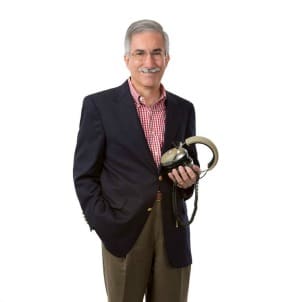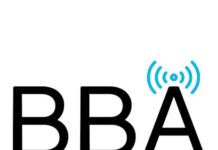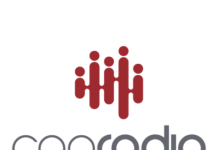
The FCC’s requirements for sponsorship identification, contained in Section 73.1212 of the Commission’s rules and based upon Section 317 of the Communications Act, appear to be deceptively simple. If a third-party furnishes something of more than nominal value to a broadcast station or a program producer in exchange for certain programming, a sponsorship ID must be broadcast. Let’s dig deeper into this.
In practice, however, broadcast stations continue to wrestle with the FCC’s sponsorship ID requirements as shown by the $115K civil penalty paid by a Las Vegas TV station for broadcasting news reports, without a sponsorship ID, that were actually commercials paid for by local car dealerships.
Much of the FCC’s enforcement activities regarding sponsorship ID are focused on preventing payola. For a refresher on payola, the FCC’s 2007 consent decrees involving several major broadcasters, in particular the compliance plans agreed to by such broadcasters (see, for example, the “Company Business Reforms” at Attachment B ) is enough to illustrate that, while the line between payola and promotion may not always be clear, there are significant penalties for going over the line.
Another aspect to sponsorship ID is the myriad of political broadcasting sponsorship regulations. Since the 2014 election season is over, let’s leave a discussion of the FCC’s political sponsorship ID rules to another day.
It was non-payola and non-political sponsorship ID that was at issue in the Las Vegas TV station case. In that case, the programming was “commercial announcements … in the guise of news or editorial content.”
So how can management and station personnel recognize when a sponsorship ID issue might arise? Simply put, if a third-party supplies, or pays the station money or other consideration to, broadcast promotional programming content, and it is not evident to the radio listener from the programming itself that the third-party paid for or supplied the programming, then a sponsorship ID is most likely required.
Let’s take a look at a few examples, some taken from previous FCC enforcement actions, and some not; and then after the examples, a commentary on each:
— A radio personality enjoys eating at a particular restaurant, and the restaurant’s owner offers the radio personality free meals knowing that the radio personality will favorably mention the restaurant on the air.
— A newsperson produces a weekly consumer report series in which various products sold by a local merchant are reviewed. The only products reviewed are those given to him by the merchant to keep. While he identifies the local merchant for the availability of the product, he does not reveal that he was given the product to keep at no charge.
— An advertiser buys a flight of spots for home remodeling services. The radio station agrees that, as part of its other programming, it will present a series of home remodeling tips in which the advertiser is mentioned as a local contractor performing such services.
— A hospital offers a two-minute program on health care tips, for which the station sells adjacencies to local doctors, and the two-minute program itself manages to routinely weave into its tips a description of the hospital’s various amenities.
— A local business with the name “Exotic Massages” has determined that its name deters rather than enhances its business prospects, so its ad copy promotes its massage services by giving an address and phone number without mentioning the business’ name.
— A talk show host receives payments from a local merchants association for including in her programming a particular point of view with respect to shopping local businesses.
— A talk show host buys his two hours of time per day on the station.
— Guests on the radio station’s regularly-scheduled talk show pay the station for the right to appear and promote their products and services.
— A program director has a side business booking bands for local nightspots and includes the band’s recordings on the station’s playlist in the week prior to the appearance.
Each of these examples above likely requires additional sponsorship identification.
In the case of the free meals for the radio personality, the mention of the restaurant must inform the reasonable listener that free food enters into the endorsement.
The newsperson reviewing products is an easy one. The content of the programming is clearly dependent upon the consideration received in the form of the product from the merchant.
The home remodeler spots are presumably normal advertisements which have a legal sponsorship ID with the name of the business integrated into the commercial message. But, the additional home remodeling “tips,” which likely appear to the listener as non-sponsored programming content, require a sponsorship ID.
While the hospital’s two-minute program gets paired with a commercial message purchased by a doctor, the two-minute program itself with hospital promotional messages is not a message sponsored by the doctor. Rather, the two-minute program, with laudatory mentions of the hospital’s amenities, likely requires a separate sponsorship identification of the hospital.
The Exotic Massages example is derived from an FCC case in which a broadcast station ran spots for a business named “The Cigarette Outlet.” Possibly deciding that using the word “cigarette” on the air in an advertisement ran afoul of the cigarette advertising ban, the station violated the FCC’s sponsorship ID rule by only giving the address and phone number of the business in the promotion of its non-cigarette products. The FCC ruled that the name of the business is a required part of the sponsorship ID.
A talk show, if time is purchased by the host, or the station receives consideration for the presentation of a guest or a point of view, requires specific sponsorship identification.
Finally, a radio station employee with a side business, particularly if that side business relates in any manner to the station’s programming, should be carefully and frequently scrutinized to be certain that programming is not being influenced by the employee’s other business interests, or if it is, that appropriate sponsorship identifications are presented.
A radio station licensee or manager needs to put herself or himself in the position of a listener. Ask, with each aspect of radio station content that promotes a product or service, whether the listener is fairly informed that the radio station, or the program/content producer, is being paid to promote the product or service, and the identity of who is paying or providing consideration. If it is not clear whether the programming is sponsored, or by whom, then the radio station likely has a sponsorship identification issue which could lead to a significant FCC penalty.








